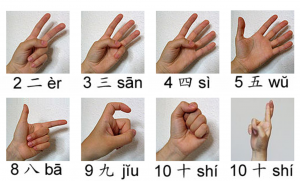Come on and Zoom!
Trivialized media
 Iranian blogger Hossein Derakhshan was sent to prison in 2008 for what he had written and advocated for online. When he was released in 2014, the internet had greatly changed:
Iranian blogger Hossein Derakhshan was sent to prison in 2008 for what he had written and advocated for online. When he was released in 2014, the internet had greatly changed:
There’s a story in the Qur’an that I thought about a lot during my first eight months in solitary confinement. In it, a group of persecuted Christians find refuge in a cave. They, and a dog they have with them, fall into a deep sleep and wake up under the impression that they have taken a nap: in fact, it’s 300 years later. One version of the story tells of how one of them goes out to buy food – and I can only imagine how hungry they must have been after 300 years – and discovers that his money is obsolete now, a museum item. That’s when he realises how long they have been absent.
The hyperlink was my currency six years ago. It represented the open, interconnected spirit of the world wide web – a vision that started with its inventor, Tim Berners-Lee. The hyperlink was a way to abandon centralisation – all the links, lines and hierarchies – and replace them with something more distributed, a system of nodes and networks. Since I got out of jail, though, I’ve realised how much the hyperlink has been devalued, almost made obsolete.
The piece is full of pull quotes, so read the whole thing. How little we notice just how much social media sites and our use of them has changed is a tribute to the ingenuity of engineers in Silicon Valley. They think about this stuff all the time, so we don’t have to! But the punchline is… we do have to. Derakshan’s perspective is a stark reminder of just how limited the use of social media has made our world – all beneath the aegis of connecting, sharing and informing. Frogs eventually do notice the water boiling. It’s crucial to set the irony aside, and reset the way online convenience has conditioned us already.
There’s a resolution. Happy 2016.
Image: Count on your hands in Chinese
Greenface vs. Peacebook
It seems a little much.
Social networking giant Facebook has been taking heat from enviros recently for its decision to site a massive new data center in Prineville, Ore. The issue? Pacific Power, the utility that serves Prineville,gets most of its power from coal, the enemy of the human race. Greenpeace International has started a Facebook group opposing the move.
But as Roberts points out, it’s the movement of the societal norm needle against/away from coal that’s the key here. Coal sucks and is doing some very terrible, long term damage the longer we use it. But we have quite a lot of it and it’s cheap – the perfect storm for planetary self-extortion. We’d like to change but we can’t afford to. We hedge about its effects on the future as a way of making ourselves feel better, but this ploy does absolutely nothing for long term self-preservation. It’s not a ploy in that direction at all, but a psychological ameliorative. Until somebody does something.
Big manufacturers can’t envision a way to replace the trainloads of coal flowing into their plants each day, so they do nothing. The government hasn’t found the courage to begin to discourage coal usage and/or incentivize clean energy on a grand scale. So what to do? One thing: you might begin to castigate, ridicule and generally create negative PR buzz on the coal front for the entities who are effected by such things. It’s weak, I’ll admit. But we already make all kinds of small decisions like this that re-enforce the status quo on energy consumption, and there are and will be that many more that will have to be reckoned with – or ignored on the basis that nothing can be done – to begin to effect change.
If it’s going to happen.
